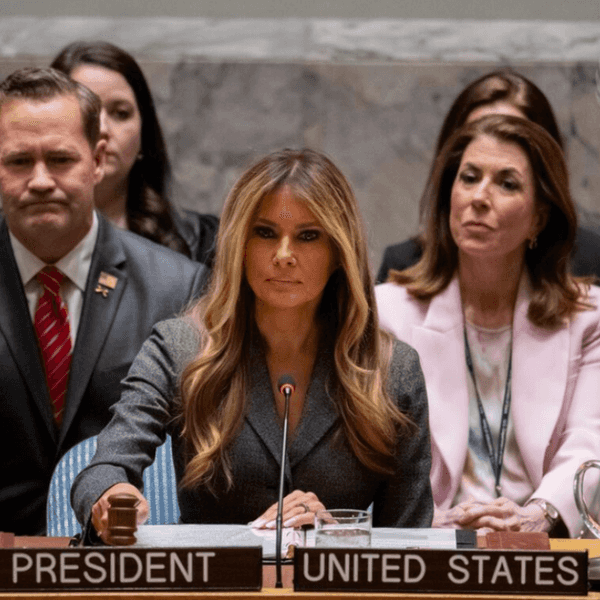
Reprinted with permission from AlterNet.
An Arizona federal judge has struck down a state law banning ethnic studies programs as being racially discriminatory. The ruling was a big victory for advocates and educatorswho argued that the ban, passed by Republicans in 2010, unfairly targeted Latino students in the state and kept them from learning about their history.
Judge A. Wallace Tashima ruled on Tuesday that HB 2281—which shuttered Tucson’s Mexican American studies program as a result—violated students’ rights, including the Equal Protection Clause of the14th Amendment and the students’ First Amendment “right to receive information and ideas.”
“Both enactment and enforcement were motivated by racial animus,” Tashima said in his decision.
The lawsuit centered on HB 2281, which banned courses promoting “the overthrow of the United States government, “promote resentment toward a race or class of people,” “are designed primarily for pupils of a particular ethnic group” or “advocate ethnic solidarity instead of the treatment of pupils as individuals.” The court case was brought forthby a group of students against Arizona’s top education official.
Tashima’s decision presents a victory for ethnic studies advocates and local grassroots organizations such as United Non-Discriminatory Individuals Demanding Our Studies (U.N.I.D.O.S.) who have argued that banning the Mexican American studies program directly targeted and discriminated against Mexican American students. The Tucson district’s Mexican American studies program, which was first implemented in 1998, was the only ethnic studies program in the state that was impacted by HB 2281. Similar ethnic studies curriculum were unaffected.
Tashima heavily criticized John Huppenthal and Tom Horne, former Arizona state superintendents of public education, arguing that their attacks on the ethnic studies program were politically motivated. Huppenthal once said the fight between HB 2281 and Mexican American studies is like “the battle between collectivism and individualism” that “defines the human race,” according to the Huffington Post.
“Defendants were pursuing these discriminatory ends in order to make political gains,” Tashima wrote. “Horne and Huppenthal repeatedly pointed to their efforts against the program in their respective 2011 political campaigns, including in speeches and radio advertisements. The issue was a political boon to the candidates.”
The push to ban the Mexican American studies program was first sparked by comments made by Dolores Huerta in a speech to Tucson High Magnet School about anti-immigrant legislation. Huerta asked the students to address “why Republicans hate Latinos.”
Huppenthal, Thorne and other Republican lawmakers who supported the law argued that the Mexican American studies program “taught Latinos to hate other races.” However, a state-commissioned audit by Cambium Learning Group found “no observable evidence” that the program had violated HB 2281. Huppenthal rejected these findings. Another 2012 study found that the Mexican American studies program had a positive impact on students who took those classes by boosting performance on state tests and increasing graduation rates.
“If student achievement really matters, it was clear from the study that we did that Mexican American studies needs to be a part of the experience in this kind of conversation,” said Jeffrey Millem, professor and dean of the Gevirtz Graduate School at the University of California Santa Barbara who worked on the 2012 study. Millem said that many of the students were part of the lowest-performing group in the district prior to taking MAS courses. The study found that after taking MAS classes, these students had some of the highest graduation rates of any group.
HB 2281 passed the same year as SB 1070, the anti-immigrant law requiring police “to determine the immigration status of someone arrested or detained” if there was reasonable suspicion they were an undocumented immigrant. Both laws fueled an anti-immigrant environment sweeping across the state at the time.
Ever since the Tucson public school district was forced to terminate the Mexican American studies program in 2012 amid threats of losing ten percent of its funding, groups such as U.N.I.D.O.S. and Librotraficantes have fought back against the law by educating students about ethnic studies and providing books that were banned by the Arizona law.
Judge Tashima’s ruling reinforces what students who participated in the ethnic studies program had been saying for years. Leo Herrera, who learned about the Maya and the Aztec Empire, as well as prominent Latin American activists Cesar Chavez and Dolores Huerta, while in elementary school and middle school in Tucson, credits the program with making his education more meaningful.
“If it wasn’t for the Mexican American studies program…me and my homies would either be locked up or we’d be dead or in jail,” he said. “Because no one, except for those MAS teachers, made us feel like we really had a place in society given the state that we live in.”
With HB 2281 struck down in court, the school district now has the freedom to decide if it will implement the ethnic studies program once more in public schools. According to the Los Angeles Times, Richard Martinez, an attorney on the case, said the judge would determine how the decision should be enforced through hearings.
Celisa Calacal is a junior writing fellow for AlterNet. She is a senior journalism major and legal studies minor at Ithaca College in Ithaca, New York. Previously she worked at ThinkProgress and served as an editor for Ithaca College’s student newspaper. Follow her at @celisa_mia.








